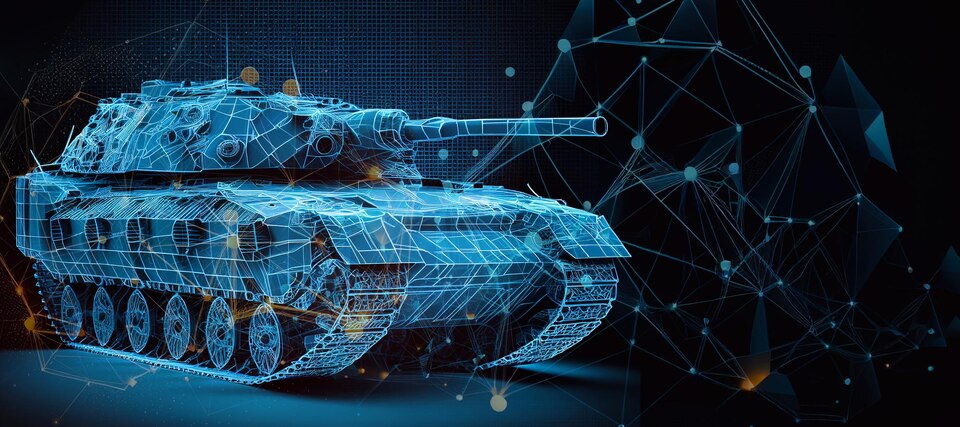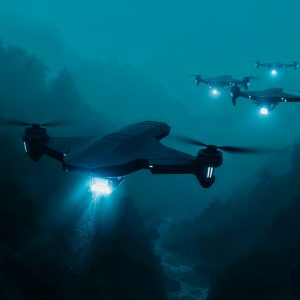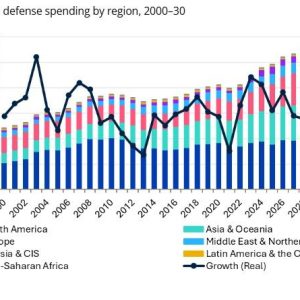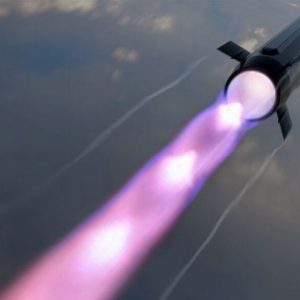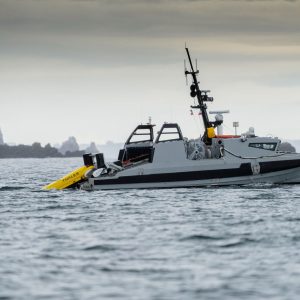The effects of new and game-changing technologies on the defence industry are far-reaching and complex. These technologies have the potential to revolutionize the way wars are fought, and they are already having a significant impact on the way defence companies operate. The Impact of Game-Changing Technologies on future warfare is a complex and rapidly evolving topic.
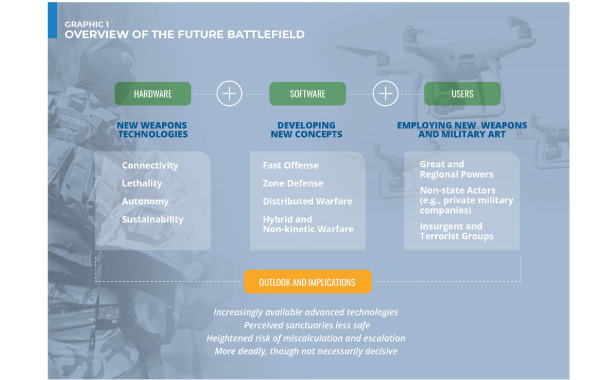
Impact of Game-Changing Technologies
One of the most significant impacts of new technologies on the defence industry is the increased cost of weapons development. As weapons systems become more sophisticated, they also become more expensive to develop and produce. This has led to a consolidation of the defence industry, as smaller companies are unable to compete with the larger, more well-funded companies.
New technologies are also leading to a shift in the focus of the defence industry from traditional hardware to software and services. As warfare becomes increasingly digital, defence companies are developing new software applications and services to support military operations. This is leading to a demand for new skills and expertise in the defence industry, and it is also creating opportunities for new companies to enter the market.
The increasing complexity of weapons systems is also making it more difficult for defence companies to maintain their technological edge. In order to stay ahead of the curve, defence companies are investing heavily in research and development. This is leading to growth in the defence research and development sector, and it is also creating opportunities for collaboration between defence companies and universities.
Significant Impact of New Technologies
New technologies are also having a significant impact on the way defence companies market and sell their products. In the past, defence companies relied heavily on traditional marketing channels such as trade shows and conferences. However, new technologies are enabling defence companies to reach a wider audience through online channels. This is leading to a shift in the way defence companies market and sell their products, and it is also creating opportunities for new companies to enter the market.
Overall, the Impact of Game-Changing Technologies on the defence industry is significant and far-reaching. These technologies are revolutionizing the way wars are fought, and they are also having a major impact on the way defence companies operate. Defence companies that are able to adapt to the changing technological landscape will be the ones that are most successful in the future. Some of the most important technologies that are likely to have a significant impact on future warfare include artificial intelligence (AI), robotics, autonomous systems, cyber warfare, and directed energy weapons.
Here are some specific examples of how new technologies are impacting the defence industry:
- Artificial intelligence (AI) is being used to develop autonomous weapons systems, which can select and engage targets without human intervention. AI is also being used to develop new surveillance and reconnaissance technologies.
- Robotics is being used to develop robots that can perform a variety of tasks, such as mine clearance, reconnaissance, and bomb disposal. Robots are also being used to develop new weapons systems, such as unmanned aerial vehicles (UAVs).
- Cybersecurity is becoming increasingly important as warfare becomes increasingly digital. Defence companies are developing new cybersecurity technologies to protect their systems from attack.
- Directed energy weapons (DEWs) are a type of weapon that uses energy, such as lasers or microwaves, to damage or destroy targets. DEWs are still in their early stages of development, but they have the potential to revolutionize warfare.
The Impact of Game-Changing Technologies on the defence industry is likely to continue to grow in the years to come. Defence companies that are able to adapt to the changing technological landscape will be the ones that are most successful in the future.
Artificial intelligence (AI) has the potential to revolutionize many aspects of warfare, including decision-making, target identification, and weapons control. For example, AI-powered systems could be used to analyse battlefield data and recommend courses of action to commanders. AI could also be used to develop autonomous weapons systems that can select and engage targets without human intervention.
Robotics is another technology that is likely to play an increasingly important role in future warfare. Robots can be used for a variety of tasks, such as reconnaissance, surveillance, and mine clearance. They can also be used to provide protection to soldiers and to carry out dangerous tasks.
Autonomous systems are a type of robotic system that can operate without human intervention. Autonomous systems are likely to have a significant impact on future warfare, as they can be used to carry out tasks that are too dangerous or difficult for humans to perform. For example, autonomous systems could be used to deliver supplies to troops in the field or to conduct attacks on enemy targets.
Cyberwarfare is a form of warfare that targets computer systems and networks. Cyberwarfare can be used to disrupt critical infrastructure, steal sensitive information, or even cripple entire economies. As our reliance on computer systems grows, cyberwarfare is likely to become an increasingly important threat.
Directed energy weapons (DEWs) are a type of weapon that uses energy, such as lasers or microwaves, to damage or destroy targets. DEWs are still in their early stages of development, but they have the potential to revolutionize warfare. DEWs could be used to disable enemy weapons systems, destroy enemy aircraft, or even disrupt enemy communications.
Conclusion
The impact of these new and game-changing technologies on future warfare is likely to be profound. These technologies have the potential to make warfare more efficient, more precise, and more lethal. They could also lead to new forms of warfare that are difficult to predict. It is important to start thinking about the implications of these technologies now so that we can prepare for the challenges they pose.
In addition to the technologies mentioned above, several other emerging technologies could have a significant impact on future warfare. These include biotechnology, nanotechnology, and quantum computing. As these technologies develop, it is important to continue to assess their potential impact on warfare.
The impact of new and game-changing technologies on future warfare is a complex and rapidly evolving topic. It is important to stay up to date on the latest developments in this area so that we can make informed decisions about the future of warfare.

